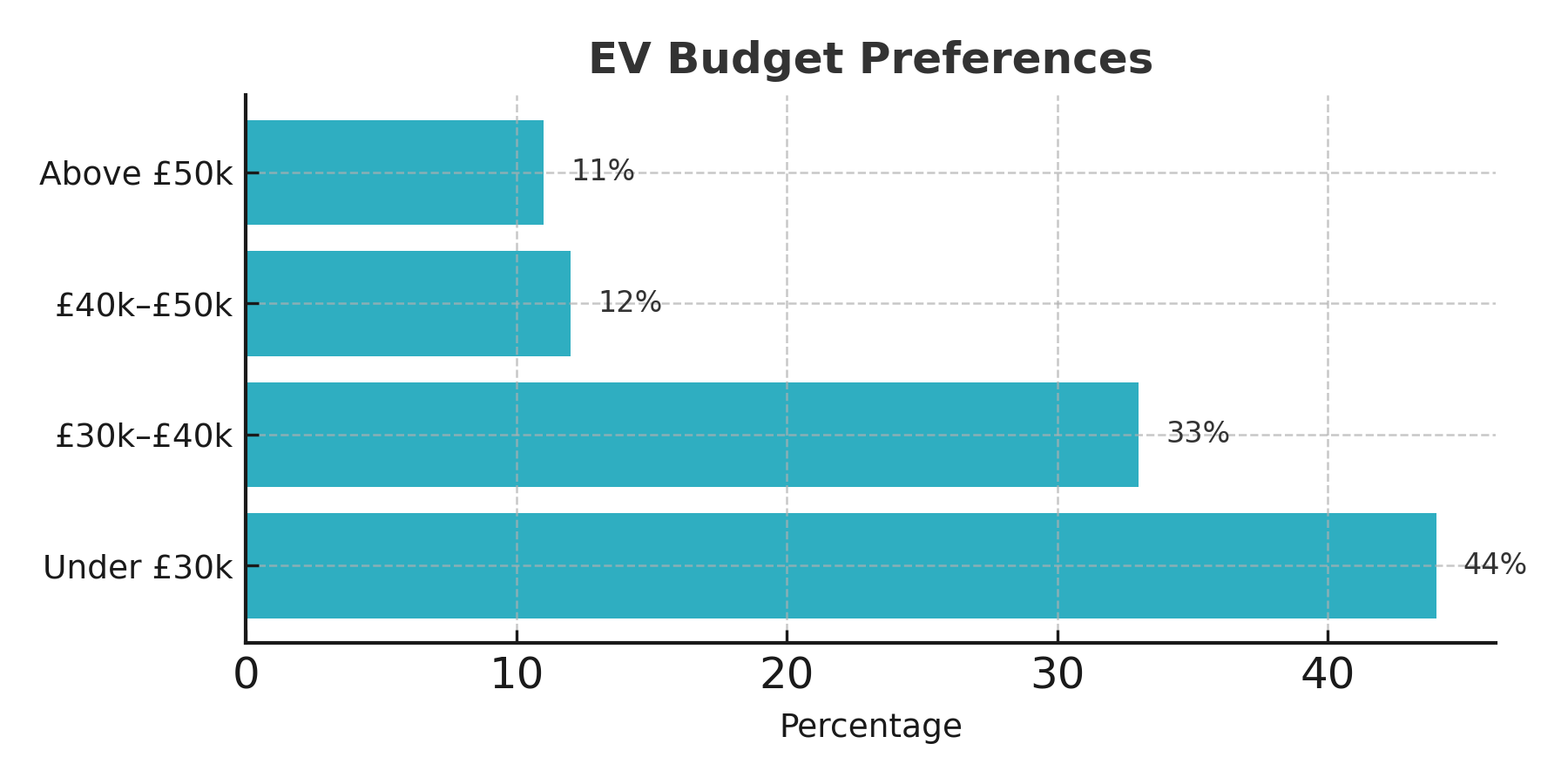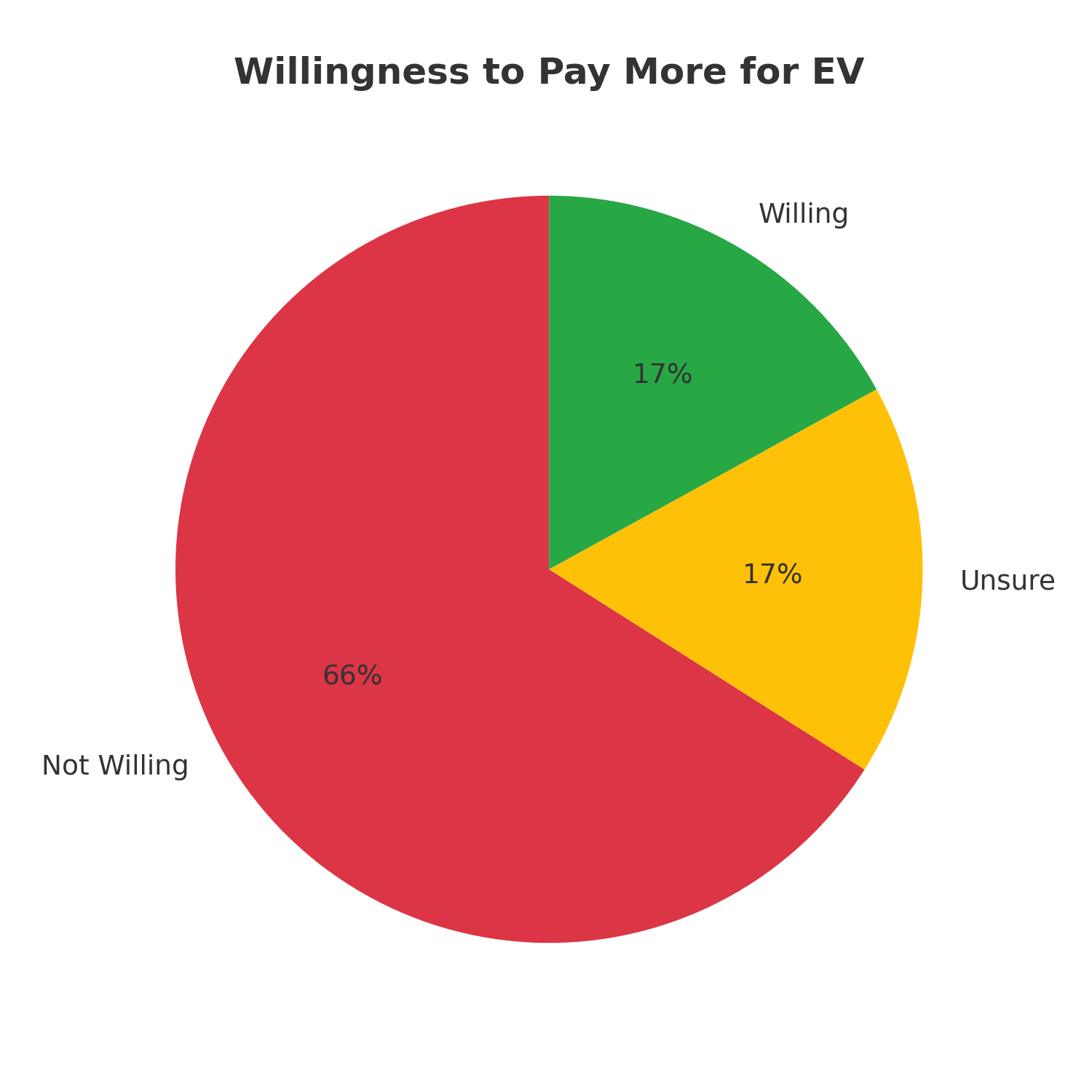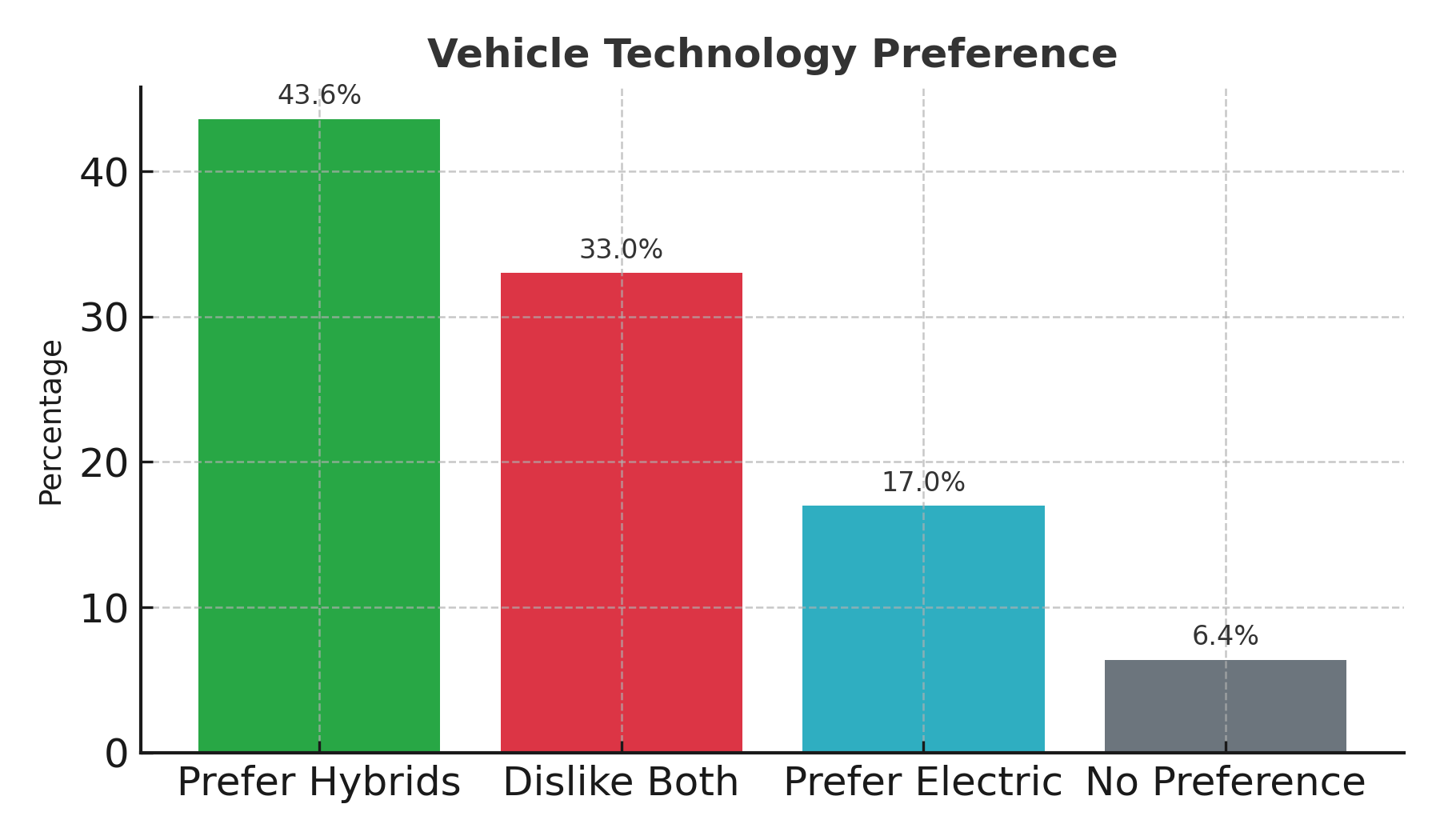Great News: Nearly Half of Drivers Are Already on the EV Path!
44% of drivers either own an electric or hybrid vehicle, or are seriously considering one. That's nearly 1 in 2 drivers ready to embrace cleaner transport!
Bar Chart showing the positive adoption trend
⚡EV Pioneers (16%)
Already enjoying the benefits of full electric driving - lower running costs, instant acceleration, and zero emissions.
🔋Hybrid Heroes (28%)
Smart drivers who've made the first step towards electrification - getting the best of both worlds.
🤔Ready to Switch (18%)
Actively considering electric - they just need the right vehicle at the right price.
🛣️Future Drivers (34%)
Not ready yet, but that's changing fast as technology improves and prices fall.
The Bottom Line
We're not facing EV rejection - we're seeing natural adoption curves. Every new technology follows this pattern, and EVs are right on track!


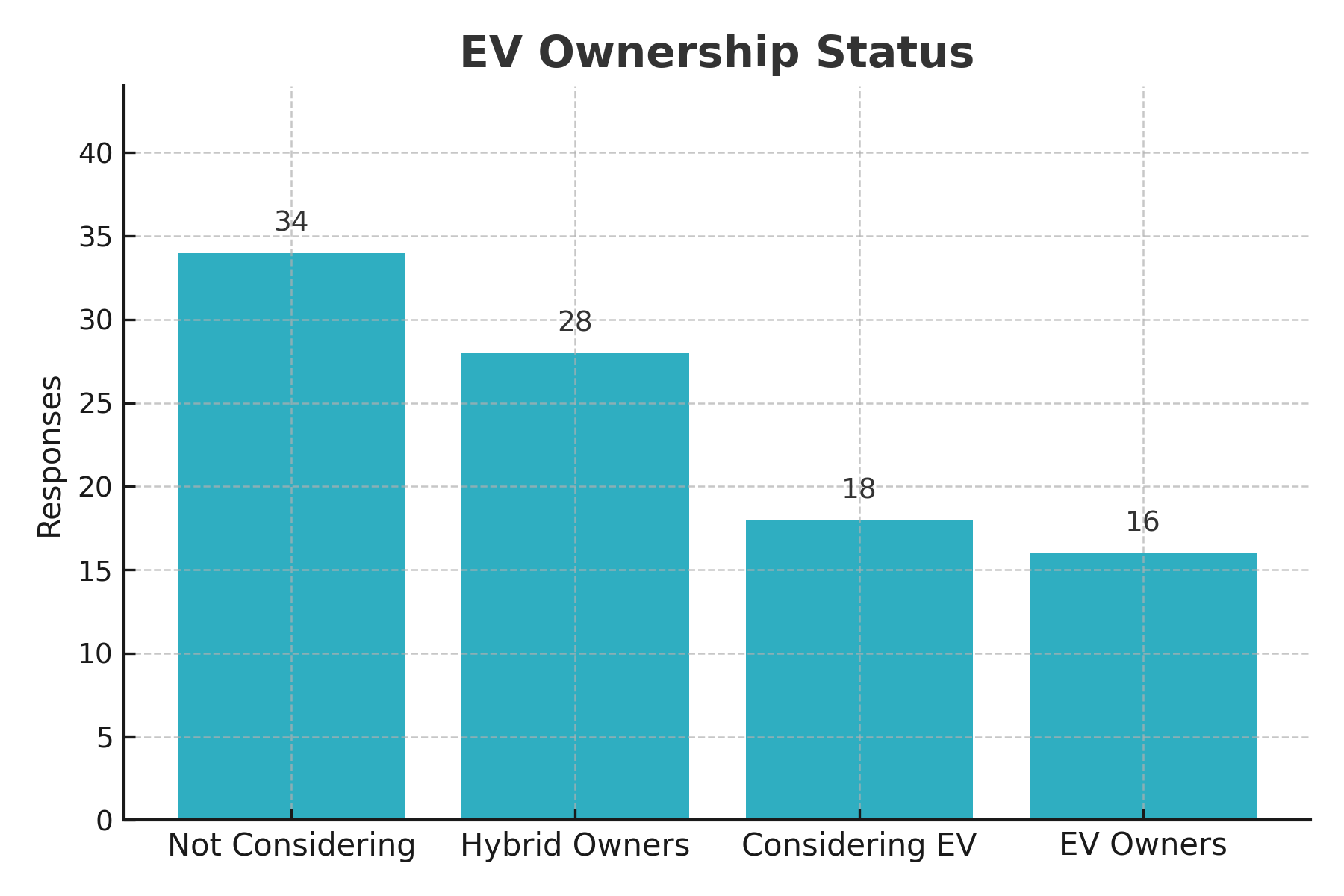
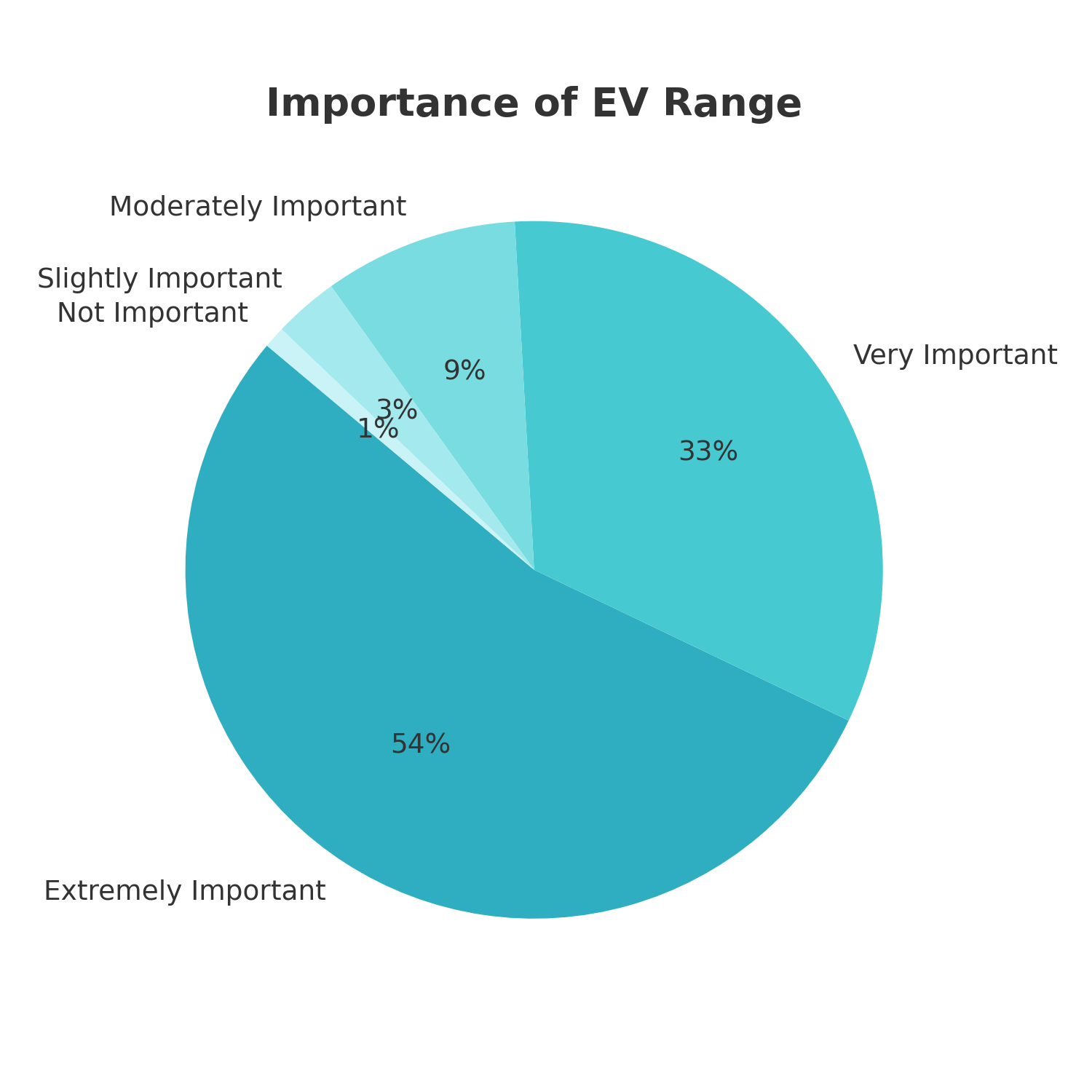
.png)
